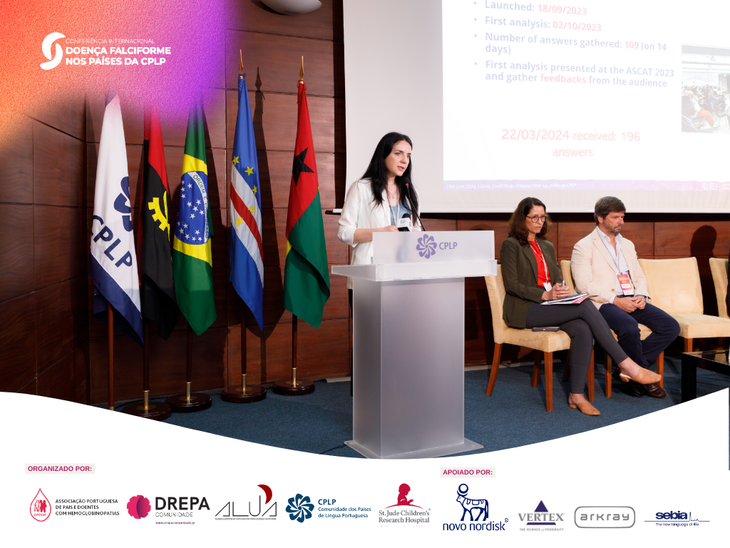ERN-EuroBloodNet was present in the International Conference on Sickle Cell Disease in Lusophone Countries, last June 19th.

The Conference had representatives from the WHO, the EHA, ERN-EuroBloodNet, patient advocates, governmental authorities and healthcare professionals from the portuguese speaking countries.
Mariangela Pellegrini, Educational & Patients Program Manager of the ERN-EuroBloodNet (European Reference Network on Rare Hematological Diseases), participated in the inaugural International Conference on Sickle Cell Disease in Lusophone Countries on June 19th, a significant occasion globally recognized for advocating the needs of individuals living with SCD.
She contributed to the panel titled "Presentation and Analysis of the Lancet Commission's Recommendations" where findings from an anonymous survey, jointly conducted by ERN-EuroBloodNet, the Lancet SCD Commission. , and the ASCAT (Annualy Accademy for Sickle Cell and Thalassemia Conference) Steering Commitee, were presented.
This survey gathered invaluable perspectives from SCD patients, caregivers, parents, siblings, and partners worldwide. We invite you to participate in the survey by clicking here, it will take no more than 10 minutes!
The event, hosted at the CPLP headquarters in Lisbon and organized by APPDH, Associação Lusófona de Especialistas para a Doença Falciforme (ALUA), CPLP, and St. Jude Children's Research Hospital, underscored the Lancet Haematology Commission's 12 recommendations on SCD. It convened experts alongside health ministry representatives from CPLP countries, including officials from São Tomé and Príncipe and Angola.
Key discussions emphasized the global impact of SCD, stressing the urgency for improved data and simultaneous policy implementation. Priorities included universal access to newborn screening, antibiotic prophylaxis, hydroxyurea treatment, and safe transfusions. The conference advocated for comprehensive care models integrating lifelong support and engaging patient associations and civil society. Lusophone countries were urged to actively contribute to enhancing educational resources, research initiatives, and debates in Portuguese.
Some photos of the event:


